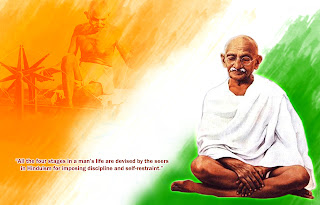Business in the 21st Century seeking Sustainability - Relevance of Gandhian model on TRUSTEESHIP

I have been watching the debate around “the case against CSR” with interest. The fundamental point where we all seem to get stuck is around “the role of business.” Economists and many CEOs argue that the role of business is to maximize shareholder profits, whereas the CSR community talks about contribution to society for the greater good. I believe that the essential problem about the role of business cannot be resolved within our current framework of thinking unless we add another element – “The element of Trusteeship.” The TATA group of companies is based around this principle. Trusteeship is the model of responsibility that best describes the group founder – JRD Tata’s view of himself and his role in the world. It was a view that JRD essentially derived from Gandhi. Gandhi talked frequently about the role of business as being that of a trustee or a steward for what you hold. Gandhi’s view of trusteeship was based on the belief that we do not really ‘ow...